Advanced Directives: Balancing Patient Autonomy and Legal Aspects
VerifiedAdded on 2023/04/21
|5
|802
|204
Essay
AI Summary
This essay provides a comprehensive overview of advanced directives, examining both their merits and demerits within the context of healthcare law. It highlights the benefits of advanced directives, such as enabling patient self-determination, protecting doctors from legal obstacles, and preventing future conflicts among family members and healthcare providers. The essay also addresses limitations, including the potential to overlook a patient's current feelings, the challenges posed by specific instructions, and the emotional difficulty for family members in forgoing life-sustaining treatment. The study concludes that while advanced directives offer significant advantages in healthcare planning, their restrictions should be carefully considered during their creation and implementation. Desklib offers this and many other solved assignments for students.
1 out of 5
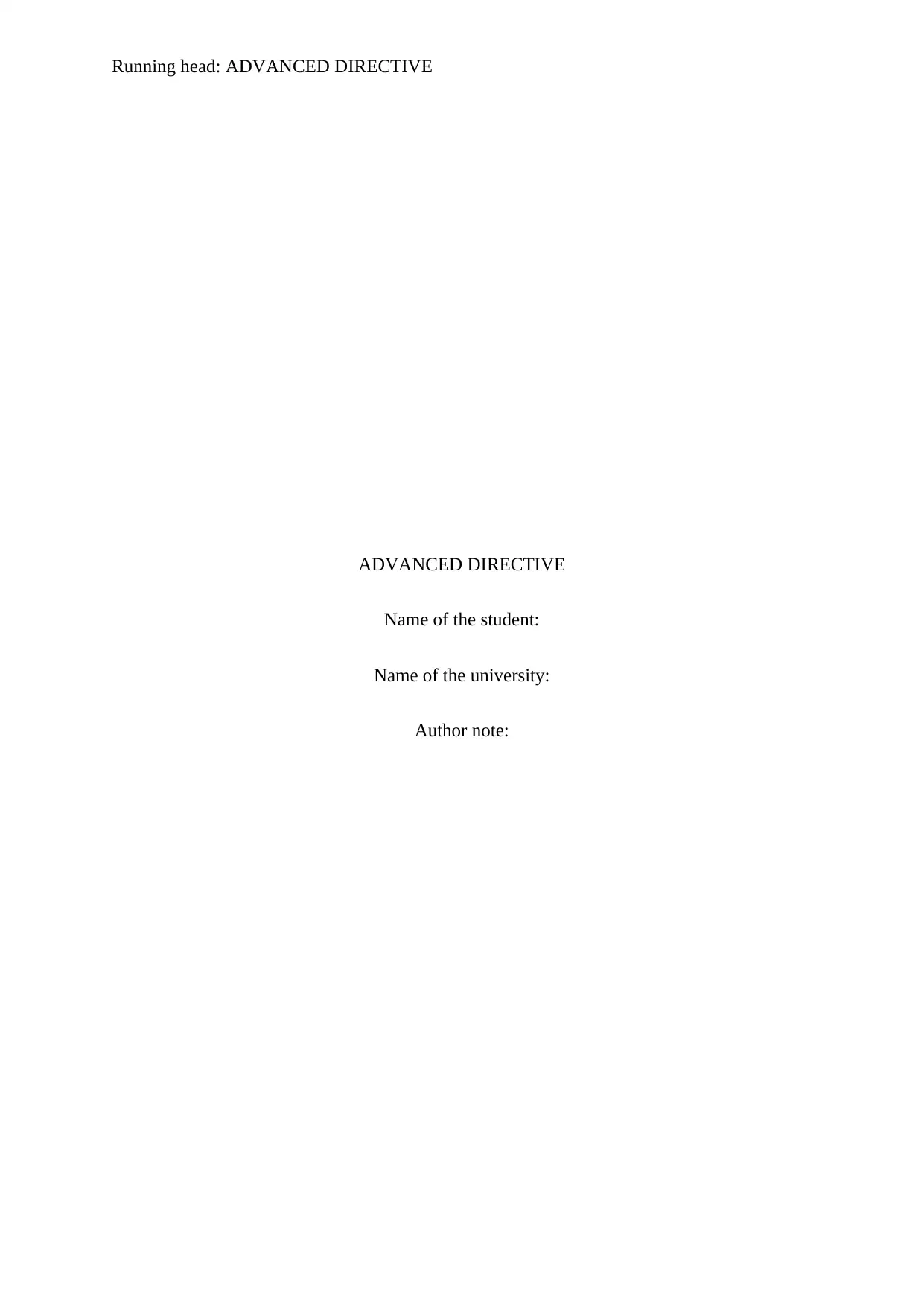
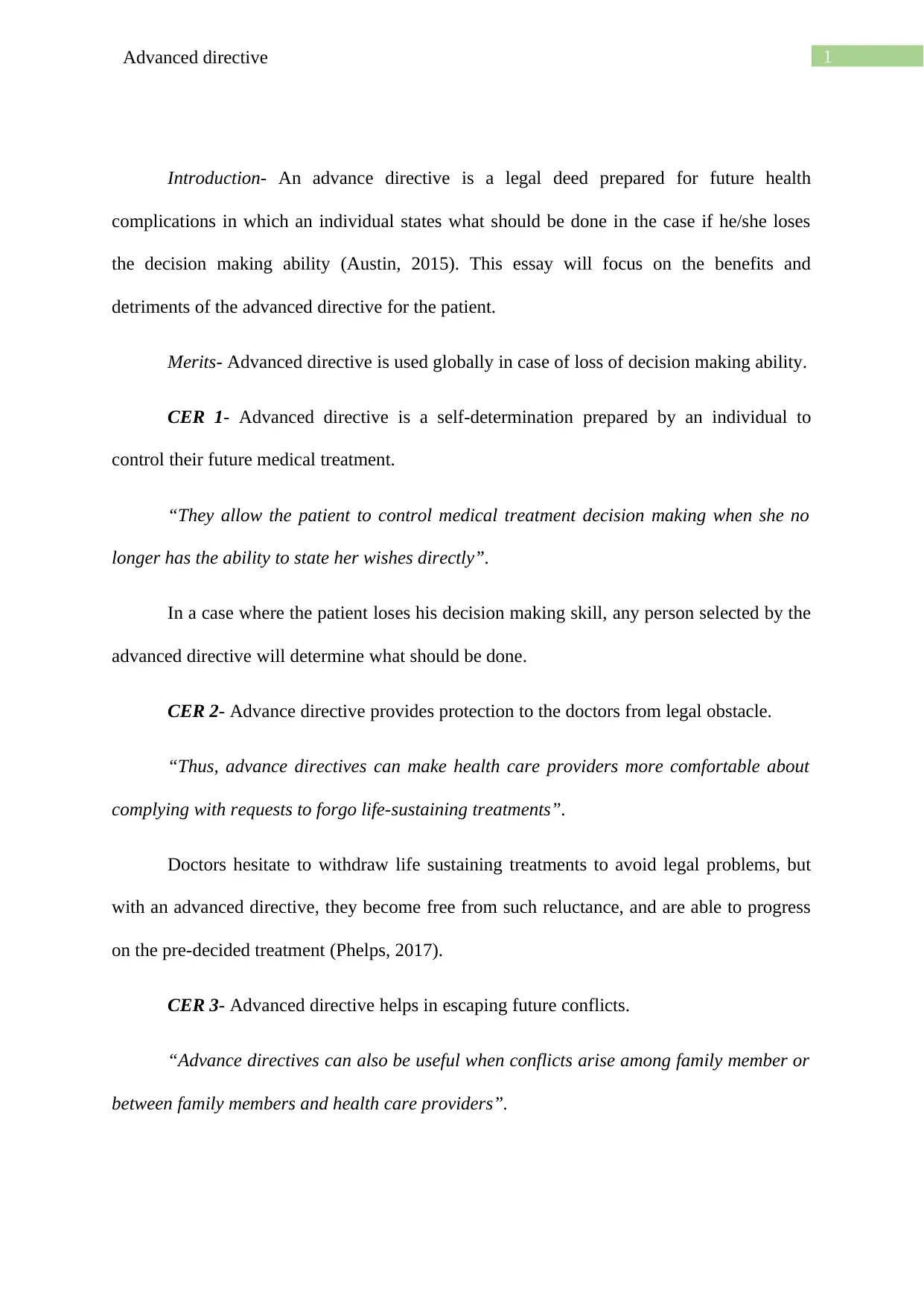
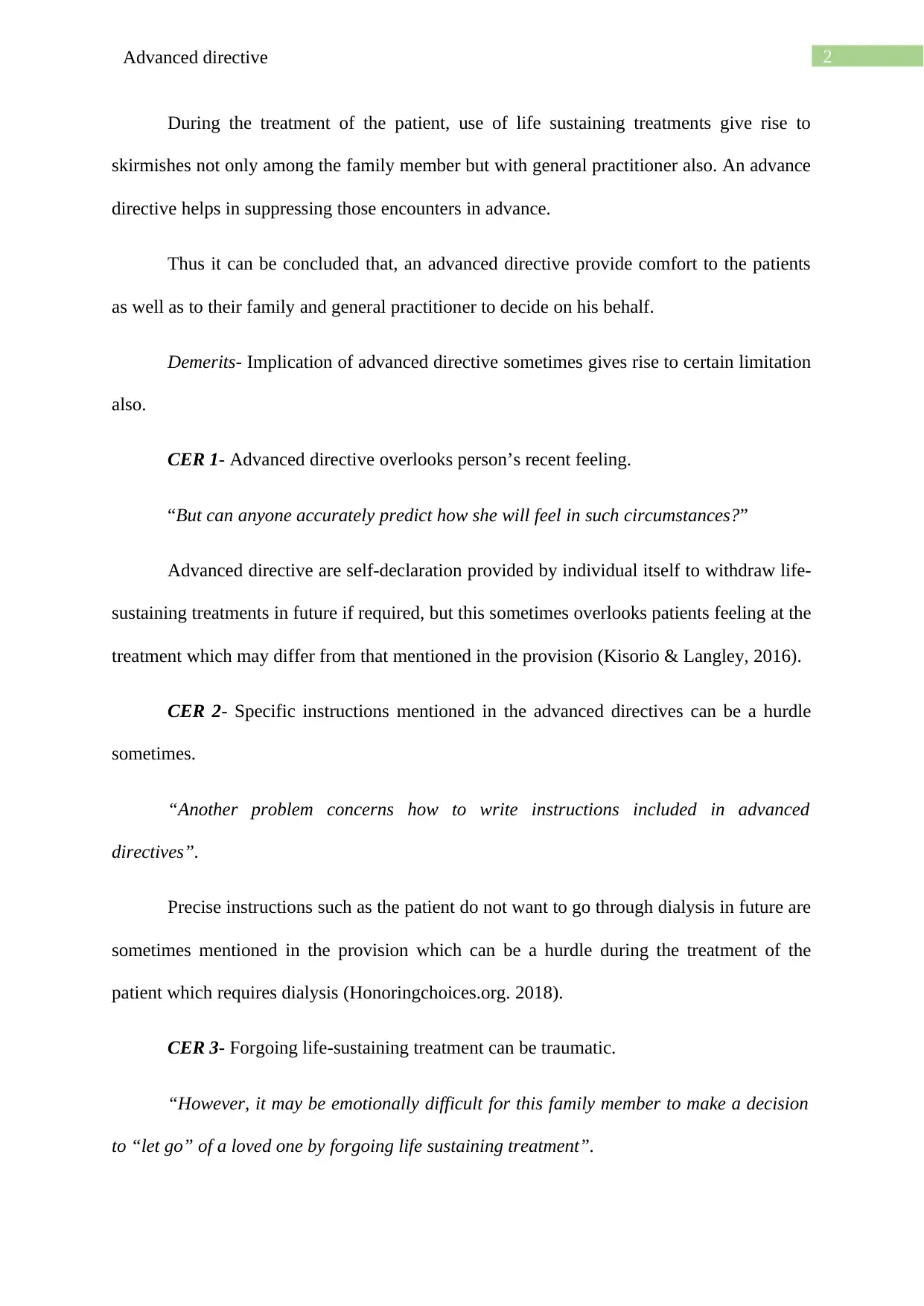

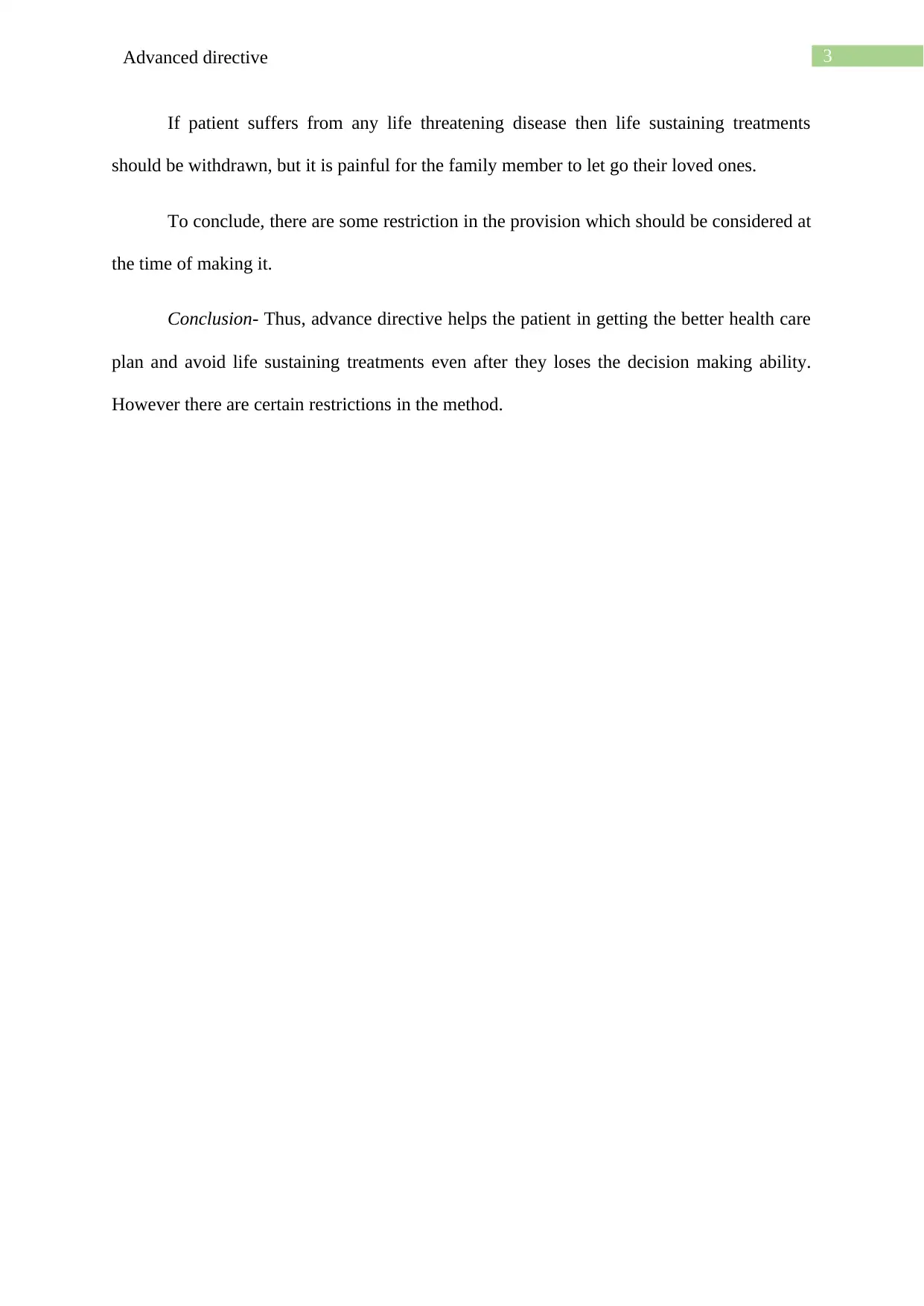
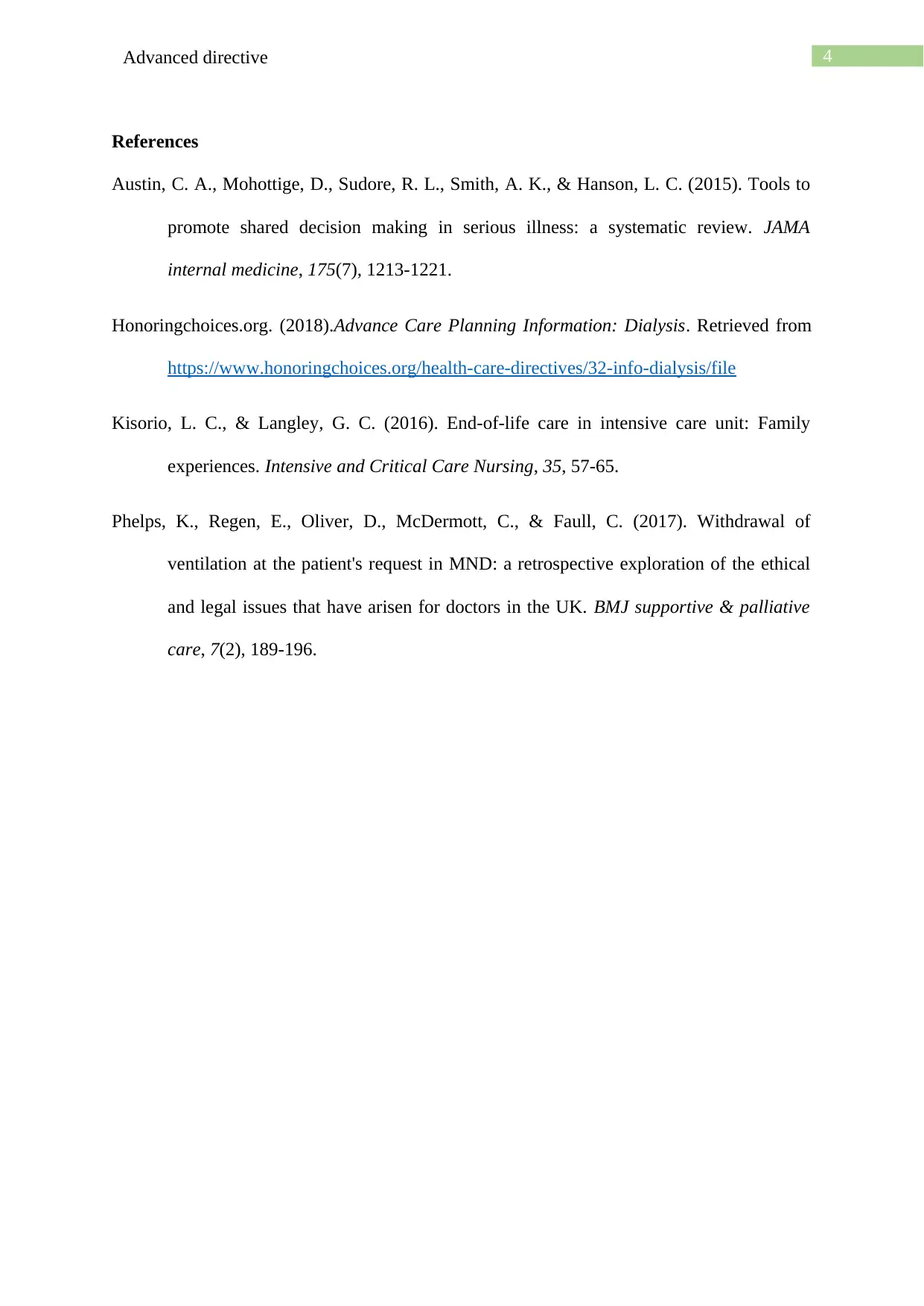






![[object Object]](/_next/static/media/star-bottom.7253800d.svg)